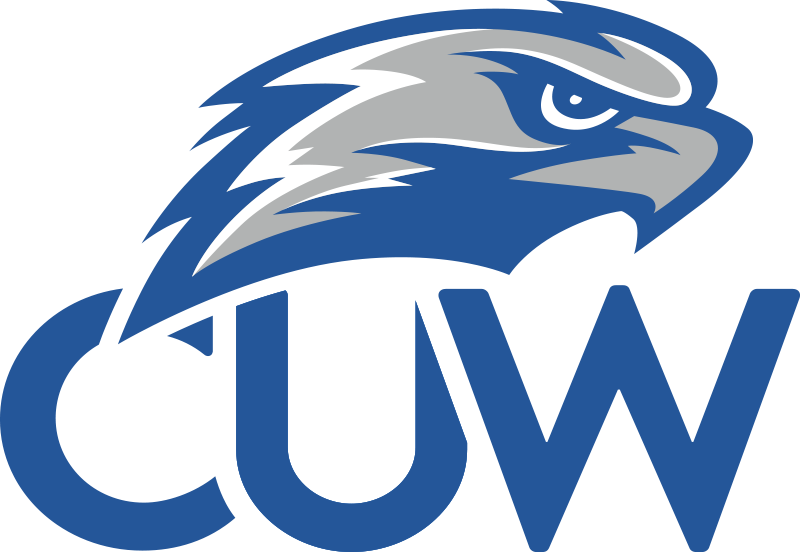Standings are aimed to be released by the end of every Tuesday.
In the 2019 Season, we have 26 technical upsets in 128 ranked matches (79.69% success rate) across 19 events. Additionally, there have been four JV matches entered into the Records.
The Gonzalez System is a computer ranking model similar to Elo and is a rating exchange system based on research performed by World Rugby. It has been adapted by the NCDA to the demands of College Dodgeball, but can be tuned and customized endlessly to incorporate accurate data. It has been used to help determine seeds for the Nationals bracket since Nationals 2014, and was used exclusively for the Nationals 2017 and 2018 bracket.
Technical Upset Spotlight
A technical upset in the Gonzalez System is when a lower rated team defeats a higher rated team. The overall success rate of the system is currently 80.17% based on 332 technical upsets in 1674 ranked matches played since 2010-09-25.
Since our last standings update, we had one technical upset across eight ranked matches and two events.
JMU def Towson 3-2
48.358+1 def 52.741, exchanging 1.338
JMU hosted Towson in a telling Double Header this weekend, and the second match was the only technical upset of the weekend.
The first match had a shallow rating gap of just 1.730 rating points accounting for JMU’s home court advantage of 1 rating point. A predicted win by Towson resulted in a rating exchange of a fairly significant 0.827 rating points.
For the second match, JMU gained slightly more points in a technical upset win. This technical upset is on the edge of statistical significance, ranking 105 of 332 technical upsets and falling in the 68th percentile. Though the numbers only tell so much a story, more detail can be explored by my fellow content writers. This was the first loss for Towson in their busy 2019 Season.
Net Rating Changes
| Rating Changes | Pre | Post | Change |
|---|---|---|---|
| JMU | 49.185 | 49.696 | 0.511 |
| UWP | 38.396 | 38.832 | 0.437 |
| Miami | 46.615 | 46.797 | 0.182 |
| GVSU | 56.097 | 56.192 | 0.094 |
| Towson | 51.914 | 51.403 | -0.511 |
| BSU | 34.326 | 33.613 | -0.713 |
JMU nets the largest rating boost this weekend thanks to an upset win, which tends to gain more points than predicted results. Though it was not enough to jump rating positions, JMU closes the gap with Towson and continues to distance themselves against the next three Michigan squads. More match results will help show where JMU fits into the body of College Dodgeball
UWP regains a bit of ground after a win against a home BSU. If a team has to lose to anybody, it helps to lose to GVSU… given such a high rating these matches tend to garner the minimum rating change. Beyond the numbers, it generally always pays in experience to play the best team in the League. As long as you have the right mindset going in.
Miami and GVSU close out the net gains over the weekend with some shallow gains. Their match was GVSU’s weightiest exchange, but even at 0.074 Miami utilized a low risk, high reward in this match. Again, it pays to play the best team in the League and the experience will be valuable when Miami takes the court against in-state powerhouses (Kent, and I’d throw in the next few too: BG, Akron). It even pays for competition against the other Michigan teams; lots of potential for Michigan upsets.
Ratings, sorted.
| Mov. | Rank | Rating | Team |
|---|---|---|---|
| — | 1 | 56.192 | GVSU |
| — | 2 | 51.403 | Towson |
| — | 3 | 49.696 | JMU |
| — | 4 | 48.766 | SVSU |
| — | 5 | 47.086 | CMU |
| ↑ from 7 | 6 | 46.797 | Miami |
| ↓ from 6 | 7 | 46.648 | MSU |
| — | 8 | 45.222 | Kent |
| — | 9 | 45.219 | BGSU |
| — | 10 | 44.944 | VCU |
| — | 11 | 44.232 | Akron |
| — | 12 | 43.565 | Ohio |
| — | 13 | 41.071 | OSU |
| — | 14 | 40.679 | UNG |
| — | 15 | 40.622† | UNT |
| — | 16 | 40.260*† | ZAG |
| — | 17 | 40.230*† | OS |
| — | 18 | 40.140 | UK |
| — | 19 | 39.791 | PSU |
| — | 20 | 39.767† | WKU |
| — | 21 | 39.203 | UVA |
| — | 22 | 39.185*† | UWW |
| — | 23 | 39.163*† | NIU |
| ↑ from 25 | 24 | 38.832 | UWP |
| ↓ from 24 | 25 | 38.510† | SIUE |
| — | 26 | 38.191 | CSU |
| — | 27 | 37.722*† | Midland |
| — | 28 | 37.466 | UMD |
| — | 29 | 37.442† | DePaul |
| — | 30 | 37.197 | UNL |
| — | 31 | 36.918† | UCF |
| — | 32 | 36.912† | SU |
| — | 33 | 36.792 | WVU |
| — | 34 | 34.666 | MC |
| — | 35 | 34.656 | GSU |
| — | 36 | 33.613 | BSU |
| — | 37 | 33.203 | BW |
| — | 38 | 31.313 | NSU |
Movement as of 2018-11-26
* denotes a provisional rating (< 6 matches)
† denotes a team that has not played three games this season, the required minimum games needed to qualify for Nationals.
Strength of Schedule Spotlight
Strength of Schedule is typically used as a measure to determine what level of competition each team is facing relative to their peers. The way to read it is fairly simple, the higher the average opponent rating, the tougher your schedule.
| Rank | Team | Avg. Opp. Rating |
|---|---|---|
| 1 | MSU | 48.604 |
| 2 | JMU | 47.594 |
| 3 | SVSU | 46.739 |
| 4 | CMU | 46.695 |
| 5 | UMD | 45.141 |
| 6 | GVSU | 44.771 |
| 7 | Kent | 44.219 |
| 8 | PSU | 44.011 |
| 9 | Miami | 44.010 |
| 10 | BGSU | 44.007 |
| 11 | UVA | 43.569 |
| 12 | Towson | 43.287 |
| 13 | UK | 43.126 |
| 14 | VCU | 42.755 |
| 15 | UWP | 42.644 |
| 16 | OSU | 42.277 |
| 17 | Ohio | 41.980 |
| 18 | UNL | 41.850 |
| 19 | BSU | 40.952 |
| 20 | Akron | 39.819 |
| 21 | MC | 39.650 |
| 22 | CSU | 39.464 |
| 23 | GSU | 39.193 |
| 24 | WVU | 39.147 |
| 25 | BW | 39.054 |
| 26 | SIUE | 39.046 |
| 27 | NSU | 38.045 |
| 28 | UNG | 36.402 |
Upset Predictor Calculator
As some of you may or may not have noticed in the Towson v JMU preview article, there was a graphic included which had multiple stats, one of which gave a probability of victory to each side. The calculation was based on all the historical spreads and results tabulated thus far in the NCDA’s history. The basic idea is given the gap between two team’s ratings what is the percent chance given to either team of winning. In the above case, Towson had a 0.707 point gap ahead of JMU entering the first game, so based on previous results Towson had a 57% chance of winning the first match.
All of that to say you too can have these results at your finger tips now! Included in this calculator are multiple features. Number one, you can select two teams to play against each other in a theoretical head-to-head match. As a result the calculator will tell you what the probability of victory is for either side with another addition of telling you what the exchange will be for the matchup if the predicted winner wins or there is an upset. Number two, there is an option to put in your own ratings as well to see your own theoretical outcomes.
In future articles, I will include not only the probability of upsets in the sections above but also include the calculator in one of the various links below.
-Hunter Ford
See the Resource Center for more documentation.
Records, Master Spreadsheet: 2005-Present
Records, Individual Docs: 2011, 2012, 2013, 2014, 2015, 2016, 2017, 2018, 2019
Systems: Gonzalez Current
Prediction Calculation: Gonzalez Predictor


























1